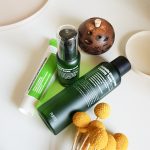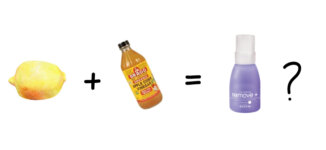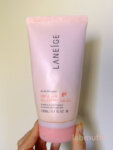Here’s a new video that covers what SPF means, and debunks a couple of SPF myths:
- Why SPF doesn’t mean how many times longer you can stay in the sun
- Why higher SPF is more effective (and not just 1% more effective)
I’ve talked about the first myth before in this post on SPF and UV index, but I haven’t really talked about the “SPF 50 is only 1% better than SPF 30” myth before, except as an aside in my post on the relationship between SPF and the amount of sunscreen applied. It’s a myth that’s widespread, even amongst dermatologists, according to this open access paper from JAMA Dermatology (DOI: 10.1001/jamadermatol.2016.4924).
I also cover how SPF changes with the amount of sunscreen applied, and other things to consider apart from SPF in the video. Check it out here!
Studies on High SPF Sunscreen
These are the studies on using higher SPF sunscreens. Both of these are open access, so anyone can see them without a paywall! It really emphasises that the “high SPF sunscreens are only marginally better” myth doesn’t play out in reality, with sunscreens in actual use. Check them out:
- Russak JE et al. A comparison of sunburn protection of high-sun protection factor (SPF) sunscreens: SPF 85 sunscreen is significantly more protective than SPF 50 (open access), J Am Acad Dermatol 2010, 62, 348–349. DOI: 10.1016/j.jaad.2009.05.025
- Williams JD et al, SPF 100+ sunscreen is more protective against sunburn than SPF 50+ in actual use: Results of a randomized, double-blind, split-face, natural sunlight exposure clinical trial (open access), J Am Acad Dermatol 2018, 78, 902–910. DOI: 10.1016/j.jaad.2017.12.062
Related videos and posts
I have a lot of videos and blog posts on sunscreen, if you want to learn more! Here’s just a small selection:
- Chemical vs Physical Sunscreens: The Science (with video)
- Video: How Much Sunscreen Do You Need For Your Face?
- How SPF Changes With How Much Sunscreen You Use
- What Does SPF Mean? The Science of Sunscreen
- Fact-check: Don’t Get Burnt by DIY Sunscreen
If you’re wondering why I talk about sunscreen so much, it’s because it’s regulated as a cancer-prevention drug in many places in the world, so there’s a lot of research on it! Most other skincare products have slim pickings, so it’s much harder to make clear statements on their effectiveness and how to use them.
Also, I would say that it’s THE most important product in your routine for anti-aging, and basically all your anti-aging serums are useless without it – unless you use sunscreen, it’s like Sisyphus pushing a boulder up a hill, and a lot of anti-aging products will make your skin more susceptible to sun damage so you may end up doing more damage to your skin in the long run.
(If you want a full guide on choosing and using sunscreens, and a summary of the filters, you might be interested in the Lab Muffin Guide to Basic Skincare – there’s a chapter on sunscreen in there!)






Whenever I stop by to watch one of your videos, I learn something new, even though I thought I was already pretty knowledgeable in terms of sunscreen.
Fantastic video again Michelle, love it. Most educational.
Have you ever tried Cetaphil Sun Spf50 sold in Australia?
It works very well for me.
Hi! Loved the video. I have a lingering question: does the percentage of sunscreen actives matter? For example, some sunscreens claim to be spf 50 but have let’s say 3% zinc oxide / 4% titanium dioxide, whereas others claim to have the same spf but have 20% zinc oxide / 11% titanium. Is there a qualitative difference between the two? Thank you for the clarification!
There are a lot of things that can affect SPF apart from active ingredients – higher titanium dioxide usually means whiter, and higher avobenzone usually means more irritating, but there are a lot of other variables to consider! It isn’t a direct relationship 🙂
I’d love to see your opinion of the addition of glucose to topical products and possible problems with Maillard reactions. Specifically, I noticed that DECIEM includes glucose in many of their cheaper lines such as in the Ordinary Copper GHK Buffet serum Do you think there is a potential issue there?
I don’t think there’s much of an issue – fake tan also works through the Maillard reaction 🙂
I loved the video and how clearly you explained everything! I also agree that the myth of a higher SPF being “marginally better” doesn’t perform well in real life, as stated in the studies you are linking to. I will stick to my SPF 50, please and thank you 🙂
Michelle, I would love your help with something! A coworker was telling me today about how sunscreens are full of carcinogens that are more dangerous than skin cancer – she is saying this even after losing her own mom to melanoma. I wondered if you have a post or video that would confirm with real science to me that yes, sunscreen is not going to kill me? I’m not trying to convince her – she’s clearly done her own research and made her mind up – but I’d like to convince myself! Thank you!!!
I think I’ve covered it in the Sunscreen and Makeup Questions video! But I am planning to cover it in more detail at some point 🙂
I love your sunscreen (and really all of your) videos, they are so helpful, thank you so much!
I hope it’s okay if I ask a sunscreen question here that’s not directly related to this video’s topic.
I just watched your Morning Routine video and I saw that you use a sunscreen with Avobenzone and then afterwards use foundations which contain Titanium Dioxide, which is something I do as well. But I’ve read a few times now that one shouldn’t combine Avobenzone with Titanium Dioxide because the latter can destabilize the former (I’m not totally sure anymore but I think you mentioned it in one of your sunscreen videos too?), so when I saw that you do combine them, it made me curious about your opinion about this issue. Do you worry/think that the Titanium Dioxide in your foundation messes with the Avobenzone in your sunscreen? And if not, can I ask why? I’m sorry, I hope that’s not too weird of a question!
Hello,
Love to learn from you! And I have a few questions that I found hard to answer reliably.
First, does a smaller amount of bigger factor (say, SPF 50) work similar to a regular amount of smaller factor (say, SPF 30)? If not, what is the difference and which option is better?
Second, I know that using sunscreens helps preventing wrinkles. I also know that under-eye skin is very thin and sensitive and it’s best to use on this area only products that say they’re safe to use there. Now, what is worse for skin? Not using sunscreen on under-eyes or using it and risking wrinkles because sunscreens are heavy?
I once had a La Roche-Posay Anthelios for face and it said it’s safe for under-eyes, but it was even thickier than my Anthelios for body. It was hard to believe for me that such a thick product is under-eye safe, is it possible?
I trust your knowledge and I hope you can help me, thank you!
1. It sort of does – in general I’d say a larger amount of a lower SPF sunscreen is better. I’ve written about it in this post: How Does SPF Change With How Much Sunscreen You Use
2. Heavy sunscreens (or heavy products in general) shouldn’t cause wrinkles. They can potentially cause milia though!
What an instructive video, thank you ! 🙂
I wear sunscreen everyday to prevent photoaging and protect my skin against UVA rays.
I tried some european sunscreen with the highest PPD (30, 38 …) but they were absolutely disgusting on my skin and I am sure I never applied the right amount :/
On the other hand, I tried a korean sunscreen with a PPD of at least 16 (or pa ++++) ,so much less UVA protection in theory.
But I am able to put 1/4 teaspoon withoug looking like a greasebal
My question is : is a PA ++++ enough if I want to prevent UVA damages on my skin since 7% uva still pass through ?
I wish european sunscreen were more cosmetically elegants 🙁
Thank you very much ! 🙂
PA++++ means UVAPF 16 and over, so it could mean way less than 7% is passing through…